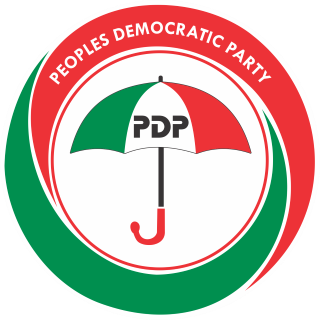
Daniel Otera
The Peoples Democratic Party (PDP), Nigeria’s foremost opposition party, has finally resolved the zoning of its 2027 presidential ticket after an abysmal outing in the 2023 presidential election.
The decision, reached at the party’s 102nd National Executive Committee (NEC) meeting in Abuja on Monday, 25 August 2025, marks a return to the party’s traditional zoning formula as it seeks to reclaim power from the ruling All Progressives Congress (APC).
The resolution to zone the party to the South followed recommendations from a 44-member zoning committee chaired by Bayelsa State Governor Douye Diri. PDP’s National Publicity Secretary, Debo Ologunagba, explained:
“NEC resolved that since the National Chairman of the party is zoned to the North, the PDP 2027 presidential ticket is hereby zoned to the South.”
This move corrects what many members saw as a costly misstep in 2023, when the party opened its ticket nationwide and fielded northern candidate Atiku Abubakar. That decision deepened divisions and cost the PDP support in southern zones. In contrast, Labour Party candidate Peter Obi dominated in the South-East and South-South, while APC’s Bola Tinubu won overall with 36.61% of the vote. Analysts widely agree that PDP’s failure to zone the ticket southward was a key factor in its loss.
Since its founding in 1998, PDP has rotated its presidential ticket between North and South to maintain balance. Olusegun Obasanjo (South, 1999–2007), Umaru Musa Yar’Adua (North, 2007–2010), and Goodluck Jonathan (South, 2010–2015) exemplified this principle. The zoning system, designed to alternate power, is seen as vital for national unity. Party elders like Prof. Jerry Gana have consistently urged a return to this formula, calling it both patriotic and strategic.
The Coalition of PDP Intellectuals Worldwide echoed this view, noting the party lost both 2019 and 2023 elections because the rotation principle was abandoned. Likewise, the Conference of Professionals in the PDP argued that zoning to the South gives the party “a vantage position to defeat President Bola Tinubu and the APC in 2027.”
Support for southern zoning cuts across factions. Nyesom Wike, Minister of the FCT and one of the party’s strongest voices, warned earlier this year: “You can’t send the presidency to the North. Selfishness can kill a system.” Governors and party elders echoed his sentiment, framing zoning as essential to fairness and equity.
Yet, the decision has not erased internal rivalries. The choice of Ibadan Oyo State Governor Seyi Makinde’s base as the venue for the November 2025 national convention is seen as bolstering his influence at Wike’s expense. This Makinde-Wike tension underscores the challenge PDP faces in presenting a united front even as it positions for 2027.
Electorally, a southern candidate could help PDP regain lost ground. Data from 2023 shows the South-East contributed 1.6 million votes to Obi’s tally, proof of the region’s appetite for a southern president. With Tinubu likely seeking re-election, a PDP candidate from the South could galvanise support in the South-West, South-East, and South-South regions critical to victory.
The party has kept its leadership balance intact, leaving the National Chairman zoned to the North while assigning the presidential ticket to the South. This, according to insiders, was designed to maintain regional equity within PDP’s structure.
The path forward is far from smooth. PDP must carefully select a candidate who can unify its base, avoid defections, and counter APC’s incumbency advantage. Potential aspirants include Makinde and, more speculatively, former President Goodluck Jonathan — though party leaders dismiss the latter as mere rumour.
The issue of defections also looms large. Just last month, seven federal lawmakers crossed over to the APC, prompting NEC to direct legal action for their seats. For PDP, stemming the tide of desertions will be as crucial as choosing the right candidate.
By zoning its 2027 presidential ticket to the South, the PDP is returning to a principle that once gave it electoral strength and national appeal. The decision is widely seen as strategic, but whether it delivers victory depends on the party’s ability to manage internal rivalries, hold its ranks together, and rally southern voters.
The real test will be less about the zoning formula and more about who emerges as the candidate capable of uniting a divided party and challenging APC at the polls.
